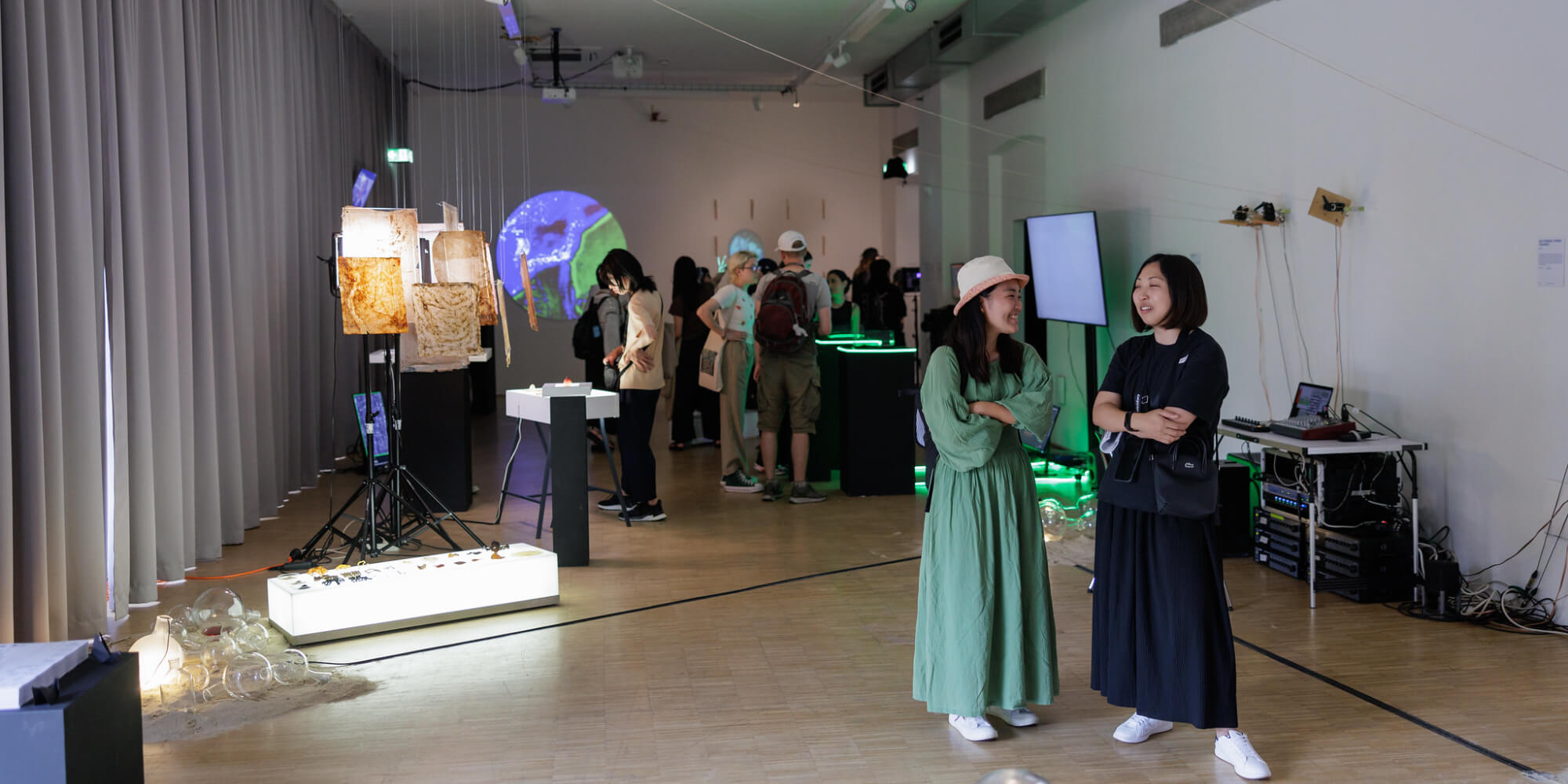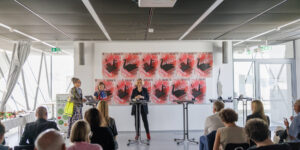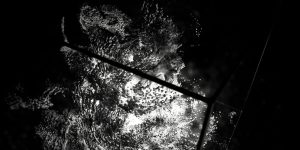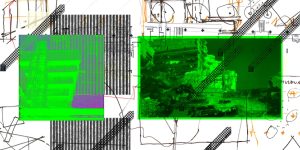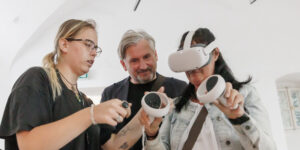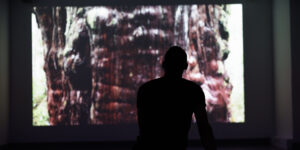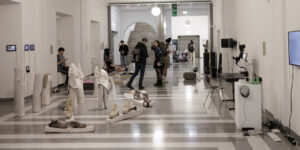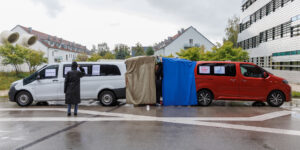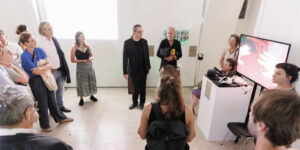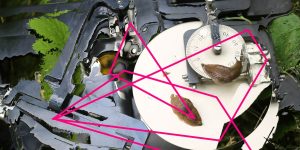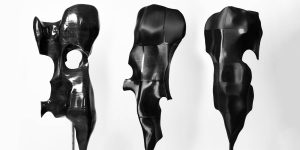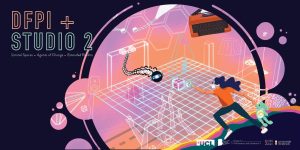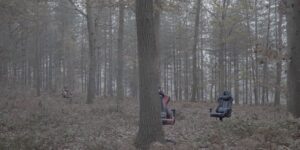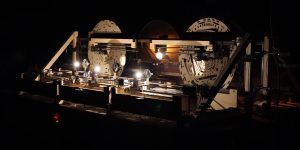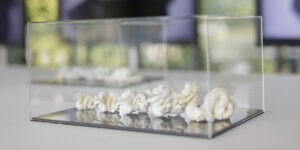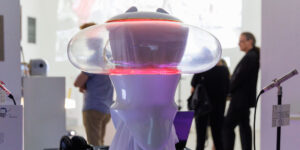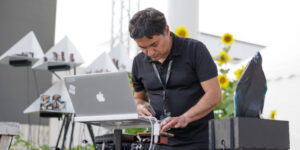Every year since 2002, Ars Electronica and the University of Art and Design Linz have hosted an exhibition by artists associated with an international higher-education institution whose curriculum takes an innovative approach to teaching media art and media culture. The intention of the Campus format is to invite outstanding international universities working in the academic fields of media arts and design. Projects highlighted here represent the nature of the mission and activities of invited guest universities from all around the world. These showcases became an essential part of the festival and an instrument to analyze and visualize different models of educational approaches in artistic and creative areas. It has also increasingly developed into a stage for contextualized works from alumni, professors or associates from the universities to map the identity of academic institutions, their history and current practice. Part of Campus’ mission is to enable the presentation of young, local media artists and their work with international exposure.
The Interface Cultures program of the University of Art and Design Linz annually presents a cross-section from their masterclass works and, together with Ars Electronica, co-hosts one main featured partner university each year. Von schwarzen Schwänen… is the title of this year’s contribution from the University of Art and Design in Linz, a metaphor alluding to the plural of various unthinkables that are intertwined in their improbability, while referring to something we are not prepared for. The exhibition of Interface Cultures, Crossing the Bridge leaves their own premises and conceptually and physically crosses the bridge, to present the selected works right at the center of the Kepler’s Gardens at the JKU Campus.
While in 2020, many of the Campus partners became Ars Electronica Garden Partners, inviting the festival audiences on a virtual and physical journey through networked biotopes and ecosystems, in which the students from all over the world are working to develop and shape our future, this year, the alliances and new forms of cooperations that have been build, can be explored again in Linz. More than 25 international academic institutions are joining us again, to present the outcomes of the past two years, full of experimental approaches and prototypes, thus the Campus program once again represents an essential, defining element of the entire festival. The local art university with its departments and institutes will function as a venue for the exchange of international perspectives while creating an extensive presentation of their own departments.
The festival is increasingly also becoming a platform for artistic and creative collaborations between Ars Electronica and the various regional, academic partners, for example the Fashion & Technology or the Time-Based and Interactive Media Art program at the University of Art and Design Linz, the Anton Bruckner Private University Upper Austria or the University of Applied Science Upper Austria, Campus Hagenberg.
The international exchange between universities, leading to increasing collaboration between academic partners brings 29 universities and institutions from many parts of the world to present their projects in Linz:
Credits
University of Art and Design Linz, Design and Technology: Fashion and Technology; Interface Cultures; Media Design; Time-Based and Interactive Media Art; PhD Study
Aalto University School of Arts, Design and Architecture
Anton Bruckner Private University Linz
Arizona State University, Leonardo ISAST
ArTeC Graduate School of Research
Bauhaus University, Weimar
Birmingham City University, School of Architecture and Design
Brno University of Technology, Faculty of Electrical Engineering and Communication
Centre Art & Technology Studies Department of the School of the Art Institute of Chicago
Korea National University of Arts | K-ARTS
MAG (Media Art Globale), Festival by Connected Art Platform
Masaryk University, Faculty of Arts
Musrara the Naggar School of Art and Society
National Tsing Hua University (NTHU), College of Arts
Technical University Berlin (TU)
UNATC, CINETic
Universidad Austral de Chile
University College London, Bartlett School of Architecture
University of Applied Sciences Berlin, School of Culture and Design, Department of Communication Design
University of Applied Sciences Upper Austria
University of Auckland, arc/sec Lab
University of Innsbruck, Studio2
University of Nova Gorica School of Arts
University of the Arts Berlin (UdK)
University of the Arts London, College of Communication
Vilnius Academy of Arts, MENE, INSTITUTIO MEDIA
Vorarlberg University of Applied Sciences, Faculty of Design
Yasuaki Kakehi Lab., The University of Tokyo
